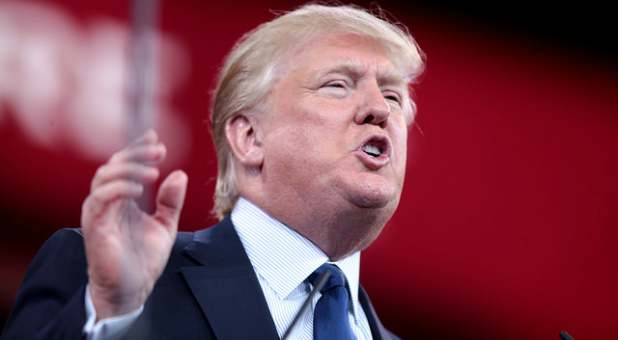Why Did Trump Postpone Embassy’s Move to Jerusalem?
In a TBN television interview with former Arkansas Gov. Mike Huckabee aired Saturday evening, President Donald Trump announced he would not be moving the U.S. Embassy from Tel Aviv to Jerusalem just yet.
It’s a perspective Israelis have heard for nearly two decades. No amount of facts on the ground seems to affect the widely held belief that peace in the Middle East hinges on a deal between Israel and the Palestinian Authority.
Trump’s repeated campaign promise to move the embassy has apparently been set aside, disappointing many who took him at his word.
“I want to give that a shot before I even think about moving the embassy to Jerusalem,” Trump told Huckabee on his TBN show.
“If we can make peace between the Palestinians and Israel, I think it’ll lead to ultimately peace in the Middle East, which has to happen,” he said, adding that his administration will decide in the “not-too-distant future” on the time frame for such a move.
While the White House insists the decision does not represent a weakening of support for Israel, U.S. Ambassador to Israel David Friedman says he will continue to push for the embassy move, saying people need to understand the chances for a negotiated settlement at this time are not realistic.
It’s likely the president and his advisors know that moving the embassy would be perceived as endorsing Israeli sovereignty in its capital, affecting negotiations with the Palestinian Authority, which claims the city’s eastern sector as the capital of a future state.
Last June, Trump signed the waiver postponing the embassy move, which he will have to reconsider again in December.
Vice President Mike Pence and others in the Trump administration, including Friedman, have said it’s not a question of “if” the move will take place but “when” it will happen.
Meanwhile, incitement to violence by both Palestinian factions continues.
Over the weekend, a rocket fired at Israel exploded in the Gaza Strip, setting off sirens in communities near the border. Israel responded by blowing up a Hamas surveillance tower, part of the Islamic group’s terror infrastructure.
Hamas vowed never to relinquish control of its arms in any reconciliation process.
Fatah, for its part, proclaimed the terrorist who killed three Israelis last month a martyr, thereby ensuring a lifetime annuity for his family. Click here to read how P.A. President Mahmoud Abbas’ party responded to the murders.
On a more positive note for many Israelis, Prime Minister Benjamin Netanyahu approved construction of 3,800 new homes in Jewish communities in Judea and Samaria (the West Bank).
According to media reports, advanced discussions on the construction between Israel and the White House will prevent any backlash. {eoa}
Copyright The Christian Broadcasting Network, Inc., All rights reserved.















































